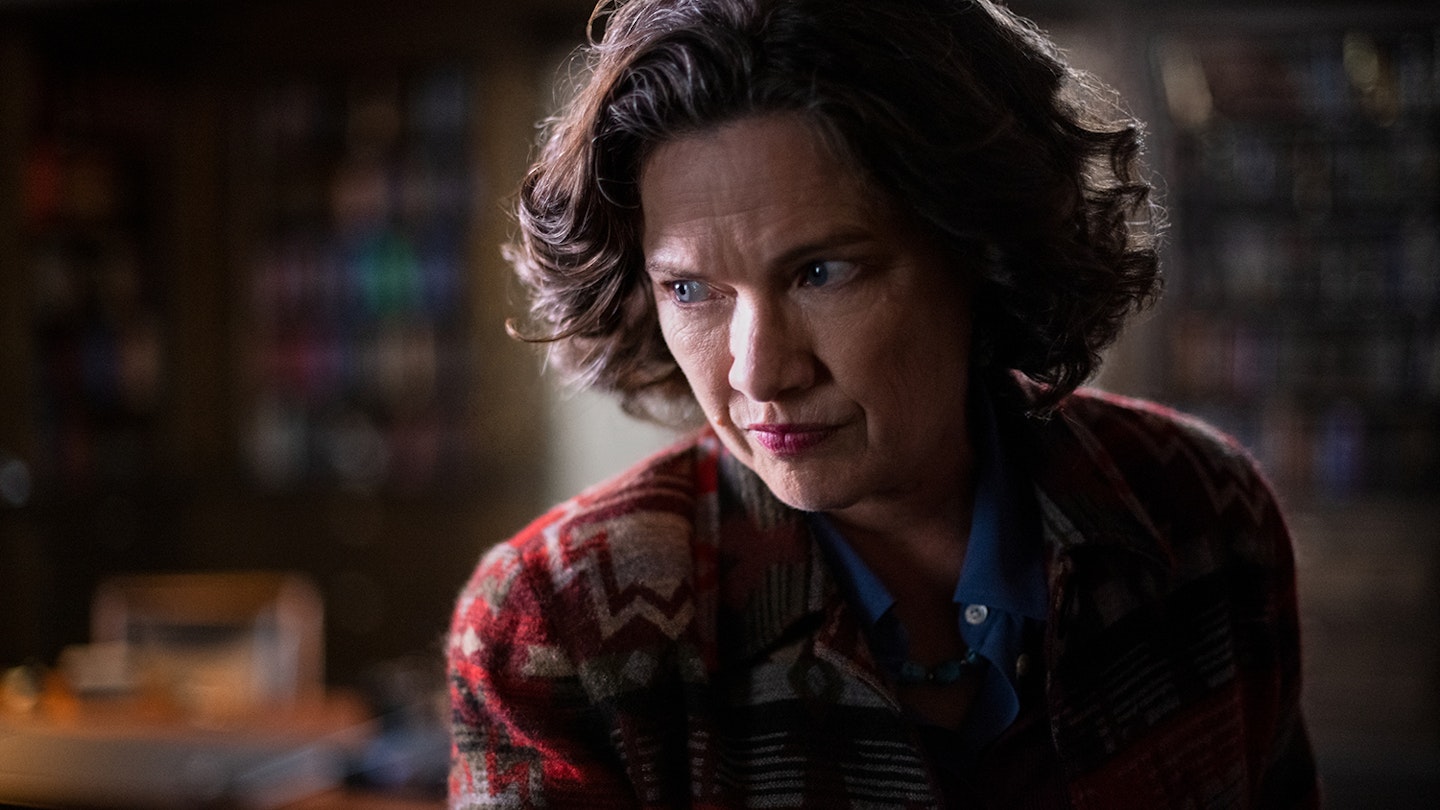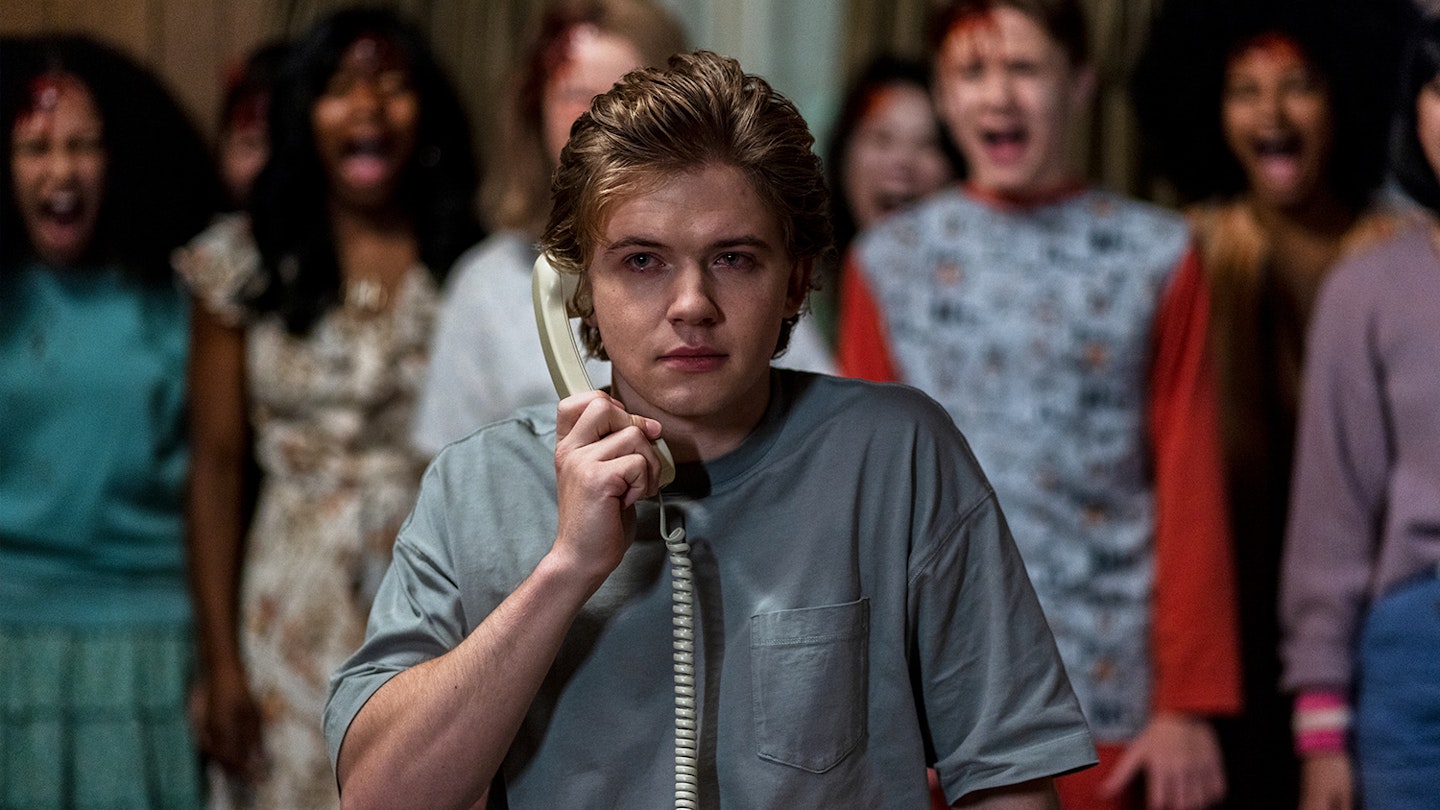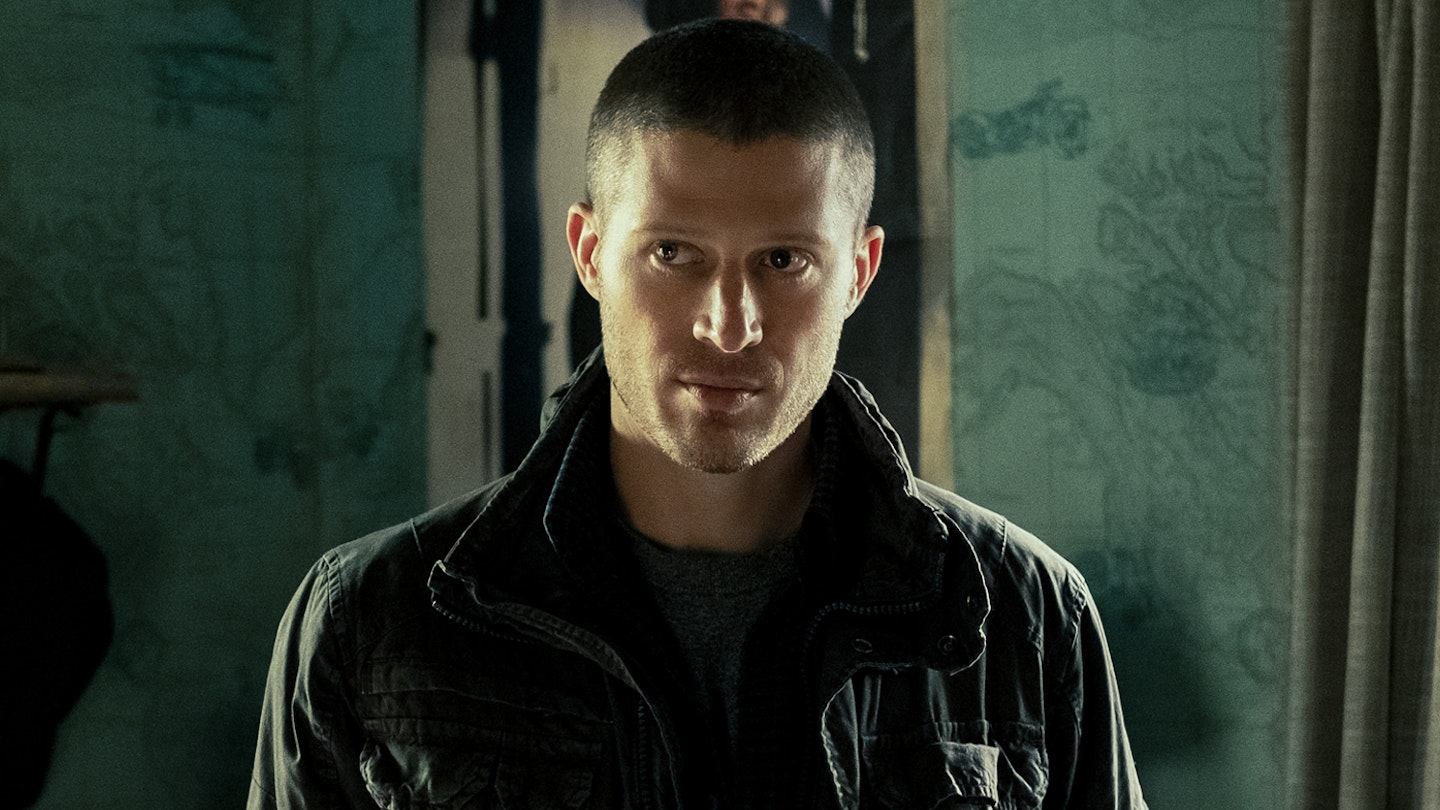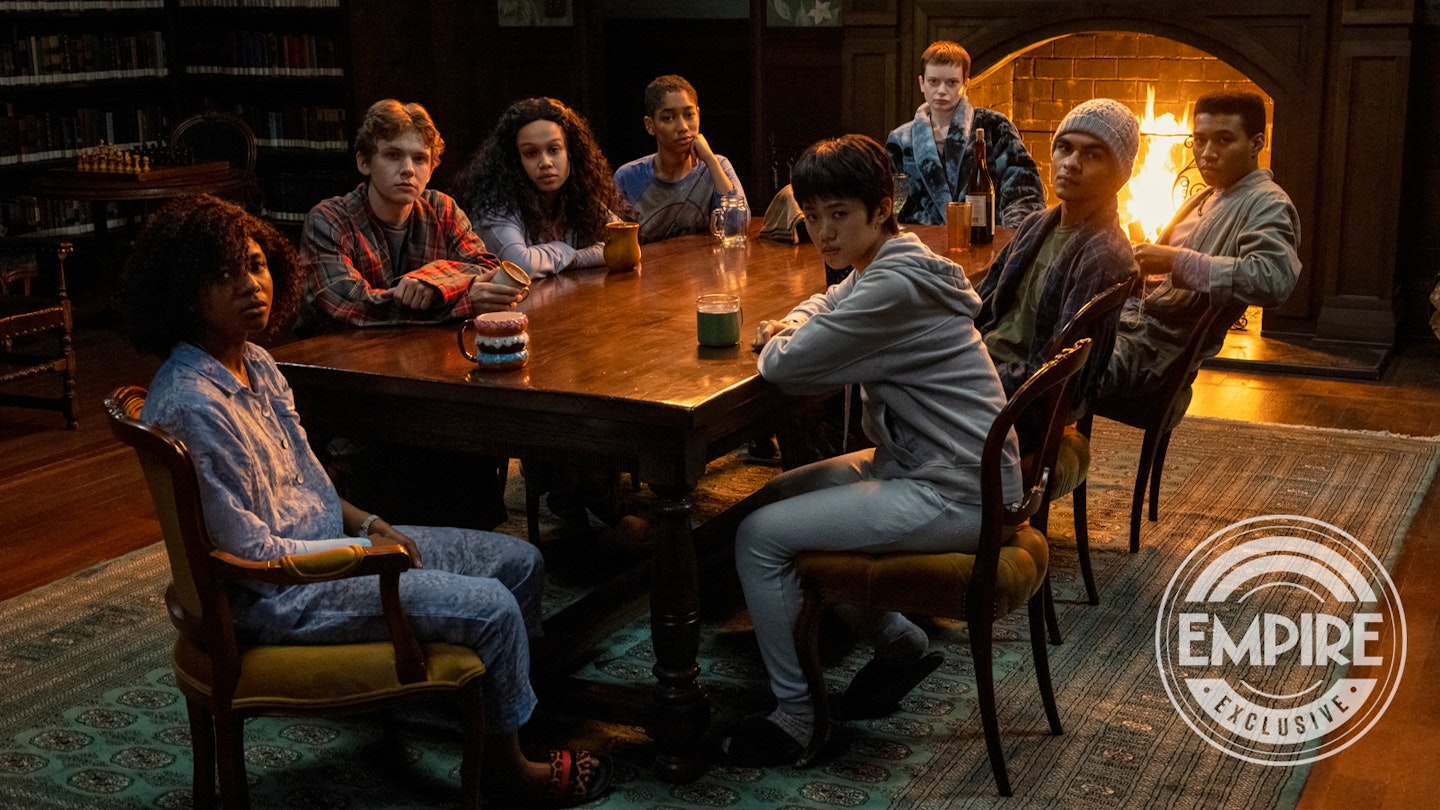Streaming on: Netflix
Episodes viewed: 10 of 10
In the ghost-ridden manors at the heart of most Mike Flanagan stories, all is rarely as it seems and appearances can be deceiving. The same might be said of The Midnight Club, the horror auteur’s latest Netflix offering: with its YA source material and bouncy pop-rock trailer needle drops, you’d be forgiven for anticipating this adaptation of a ‘90s teen novel to be a lighter palette cleanser, following last year’s harrowing Midnight Mass. That show was a vampire odyssey that sank its teeth into profound questions about religion and death, and writing it required a decade’s worth of soul-searching from the filmmaker (a recovering alcoholic, who poured his own experiences of addiction and bereavement into each episode). Surely no-one affected by that bruising tale could begrudge the Salem storyteller a slightly fluffier follow-up, one that perhaps even opens up younger audiences to his trademark brand of terror?

As it turns out, The Midnight Club barely dials back the Flanagan-isms at all. Sure, there are fewer lengthy character monologues in this ten-part series, co-created with Midnight Mass collaborator Leah Fong. But the frights are almost as visceral (see one bone-chilling vignette involving an aspiring ballet dancer). The themes are as unflinchingly poignant as we’ve come to expect, too. Set in a hospice for terminally ill teens, the show is half horror anthology and half serialised drama, as cancer patient Ilonka Pawluk (Iman Benson) balances her quest to unravel the secrets of the mysterious Brightcliffe Hospice with a quest to make friends by engaging in late-night exchanges of spooky stories with fellow residents. The result is a series that takes ambitious excursions down narrative side streets, en route to a final destination that cuts to the core of our cultural fears and fixations around death.
For those familiar with Flanagan's pathos-filled frights, it's another slice of spooky-season splendour.
Fong and Flanagan treat the source material as reverentially as you’d expect considering the latter’s relationship with the book it’s based on (the author of The Midnight Club, Christopher Pike, was one of Flanagan’s gateways into horror in his own teenage years). And though the questions at the heart of this show aren’t quite as urgent as those in Midnight Mass, nor is its atmosphere as contagiously, immersively full of dread, the series still manages to delight. Especially when standout star Ruth Codd is on screen as the nihilistic Anya, or when the show takes a breather from the supernatural to let its characters grapple with their impending fates (one scene involving a character lamenting being unlikely to live to see the release of the original PlayStation particularly stings).
For those already familiar with Flanagan’s pathos-filled frights, it’s another slice of spooky-season splendour, full of jolts and adventure. To everyone else coming fresh to this master horror-weaver’s work — as they might say at midnight in the bowels of the Brightcliffe Hospice, welcome to the club.


